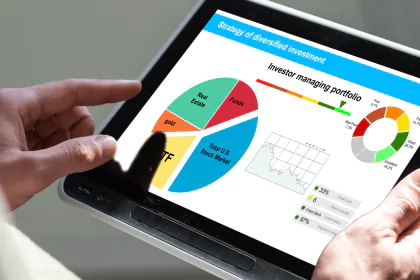In today’s rapidly evolving financial landscape, it is more important than ever to periodically reassess our financial habits to keep pace with changes and ensure long-term stability and growth. Financial habits that may have served us well in the past can become outdated or ineffective as new tools, technologies, and economic conditions emerge.
Effective budgeting isn’t about restricting your spending; it’s about making sure your money is spent on what matters most to you.
This article explores three pivotal financial practices that you may want to reconsider to ensure your financial health remains robust and your future secure. By examining modern budgeting, saving, and investing strategies, we aim to provide actionable insights that can help you optimize your finances, adapt to changing circumstances, and achieve your financial goals. Whether you’re looking to streamline your budget, enhance your savings, or diversify your investments, these updated practices will offer valuable guidance to help you navigate the complexities of personal finance and build a stronger, more resilient financial future.
1. Rethinking Budgeting Strategies
What is Budgeting?
Budgeting is the process of creating a plan to spend your money. This spending plan is called a budget. By creating this plan, you can determine in advance whether you will have enough money to do the things you need to do or would like to do. Budgeting is simply balancing your expenses with your income.
Why Reevaluate Your Budgeting Approach?
Many people find themselves stuck with outdated budgeting methods that no longer align with their financial goals or lifestyle changes. Reconsidering your budgeting strategy can lead to more efficient management of your resources and ensure you are on track to meet your financial objectives.
Modern Budgeting Tools
Traditional methods of budgeting, like pen and paper or simple spreadsheets, are being overtaken by digital tools that offer real-time tracking and more sophisticated analytics. Apps like Mint and YNAB (You Need A Budget) provide comprehensive features that can automate your budgeting process, making it easier to track expenses and adjust your budget as needed.
- Mint – https://mint.intuit.com/
- YNAB – https://www.youneedabudget.com/
Benefits of Digital Budgeting Tools
- Real-Time Updates: Track your spending as it happens, allowing for immediate adjustments.
- Goal Setting and Tracking: Set financial goals and track your progress automatically.
- Expense Categorization: Automatically categorize expenses to see where your money is going.
- Alerts and Notifications: Get alerts for bill due dates and when you’re approaching budget limits.
Practical Steps to Update Your Budget
- Assess Your Current Financial Situation: Review your income, expenses, and financial goals.
- Choose a Budgeting Tool: Select a tool that fits your needs and preferences.
- Set Realistic Goals: Define clear, achievable financial goals.
- Monitor and Adjust: Regularly review your budget and make adjustments as necessary.
2. Revisiting Savings Plans
Importance of Saving
Saving money is a crucial aspect of financial health. It provides a safety net for emergencies, helps you achieve financial goals, and ensures long-term financial stability. However, the way we save money can significantly impact our financial growth.
High-Yield Savings Accounts
Traditional savings accounts often offer low interest rates, which barely keep up with inflation. High-yield savings accounts (HYSAs), on the other hand, provide better interest rates, helping your savings grow faster.
- Ally Bank – https://www.ally.com/
- Marcus by Goldman Sachs – https://www.marcus.com/us/en
Benefits of High-Yield Savings Accounts
- Higher Interest Rates: Earn more interest compared to regular savings accounts.
- FDIC Insured: Your money is protected up to the maximum limit.
- Easy Access: Most HYSAs offer easy online access to your funds.
Emergency Funds
An emergency fund is a crucial part of your savings plan. It should cover three to six months of living expenses to protect you from unexpected financial setbacks such as medical emergencies, job loss, or major repairs.
Automating Savings
Automating your savings can ensure you consistently set aside money without having to think about it. Most banks offer automatic transfer services where a set amount of money is transferred from your checking account to your savings account regularly.
Practical Tips for Saving
- Set Specific Savings Goals: Define what you’re saving for (e.g., emergency fund, vacation, retirement).
- Open a High-Yield Savings Account: Take advantage of higher interest rates.
- Automate Your Savings: Set up automatic transfers to your savings account.
- Review and Adjust: Regularly review your savings plan and make necessary adjustments.
3. Reassessing Investment Strategies
The Role of Investments
Investing is essential for building wealth and securing financial independence. It involves committing money to an asset with the expectation of generating an income or profit. However, not all investment strategies are created equal, and it’s crucial to reassess your approach periodically.
Diversification
Diversification is the practice of spreading your investments across various asset classes to reduce risk. By diversifying your portfolio, you can protect yourself from significant losses if one particular investment doesn’t perform well.
Types of Investments
- Stocks: Investing in individual companies by purchasing shares.
- Bonds: Lending money to the government or a corporation for a fixed interest return.
- Mutual Funds and ETFs: Pooling money with other investors to purchase a diversified portfolio of stocks and bonds.
- Real Estate: Investing in property to generate rental income or capital appreciation.
- Cryptocurrency: A digital or virtual currency that uses cryptography for security.
Online Investment Platforms
Online platforms have democratized investing, making it accessible to everyone. Services like Robinhood, E*TRADE, and Betterment offer user-friendly interfaces and educational resources to help you make informed investment decisions.
- Robinhood – https://robinhood.com/
- E*TRADE – https://us.etrade.com/
- Betterment – https://www.betterment.com/
Sustainable Investing
Sustainable investing, also known as socially responsible investing (SRI), involves choosing investments based on environmental, social, and governance (ESG) criteria. This approach allows you to invest in companies that align with your values.
Practical Steps to Update Your Investment Strategy
- Review Your Current Portfolio: Assess the performance and risk level of your current investments.
- Research New Opportunities: Stay informed about new investment opportunities and market trends.
- Diversify Your Investments: Spread your investments across different asset classes.
- Consult a Financial Advisor: Seek professional advice to optimize your investment strategy.
Conclusion
Reevaluating your financial habits, particularly in budgeting, saving, and investing, is essential for maintaining financial health and achieving your financial goals. In the ever-changing financial landscape, what worked for you in the past may no longer be the most effective strategy. Therefore, it is crucial to stay informed about new tools and approaches that can enhance your financial management.
Embracing Modern Budgeting Tools
Modern budgeting tools, such as Mint and YNAB, offer sophisticated features that can help streamline your financial planning process. These tools provide real-time tracking, automatic expense categorization, and personalized insights, allowing you to make informed decisions about your finances. By adopting these digital tools, you can gain better control over your spending, identify areas for improvement, and set realistic financial goals. This proactive approach to budgeting can help you avoid unnecessary debt, save more effectively, and achieve your financial objectives.
Optimizing Your Savings Strategy
Revisiting your savings strategy is another crucial step in maintaining financial health. High-yield savings accounts offer significantly better interest rates compared to traditional savings accounts, helping your money grow faster. By automating your savings, you can ensure consistent contributions to your savings goals without having to think about it. This approach not only simplifies the saving process but also helps you build a robust emergency fund, which is vital for financial security. Regularly reviewing and adjusting your savings plan can keep you on track and ensure you are prepared for unexpected expenses.
Diversifying Your Investments
Investing is a powerful way to build wealth and secure your financial future. However, it is essential to periodically reassess your investment strategy to ensure it aligns with your financial goals and risk tolerance. Diversification is a key principle in investing, as it helps spread risk across different asset classes, reducing the impact of poor performance in any single investment. Online investment platforms like Robinhood, E*TRADE, and Betterment make it easier for individuals to access a wide range of investment options and build diversified portfolios. Additionally, considering sustainable investing options can align your investments with your values, contributing to positive social and environmental outcomes while pursuing financial returns.
The Importance of Continuous Learning
Financial markets and tools are continuously evolving, making it essential to stay informed and educated about new developments. Continuous learning can help you adapt to changes, discover new opportunities, and avoid potential pitfalls. Following reputable financial news sources, attending webinars, and consulting with financial advisors can provide valuable insights and guidance to enhance your financial strategies.
Taking a Proactive Approach
A proactive approach to financial management involves regularly reviewing and adjusting your financial habits to ensure they remain effective and relevant. This includes setting clear financial goals, tracking your progress, and making necessary adjustments to your budget, savings, and investment strategies. By staying proactive, you can navigate financial challenges more effectively, take advantage of new opportunities, and ultimately achieve greater financial stability and success.
Final Thoughts
Maintaining financial health is an ongoing process that requires diligence, adaptability, and a willingness to reassess your habits and strategies. By embracing modern tools, optimizing your savings, and diversifying your investments, you can build a more secure and prosperous financial future. Remember, the key to financial success lies in continuous learning and proactive management. Regularly revisiting and refining your financial practices will help you stay ahead of changes in the financial landscape and achieve your long-term goals.
Saving must become a priority, not just a thought. Pay yourself first.
Dave Ramsey In conclusion, by leveraging modern tools and adopting a proactive approach, you can ensure that your financial practices remain aligned with your changing needs and the dynamic financial landscape. Regularly reassessing your budgeting, saving, and investing strategies will help you maintain financial health, achieve your goals, and secure a prosperous future.












